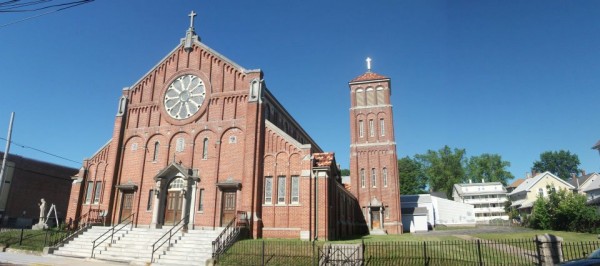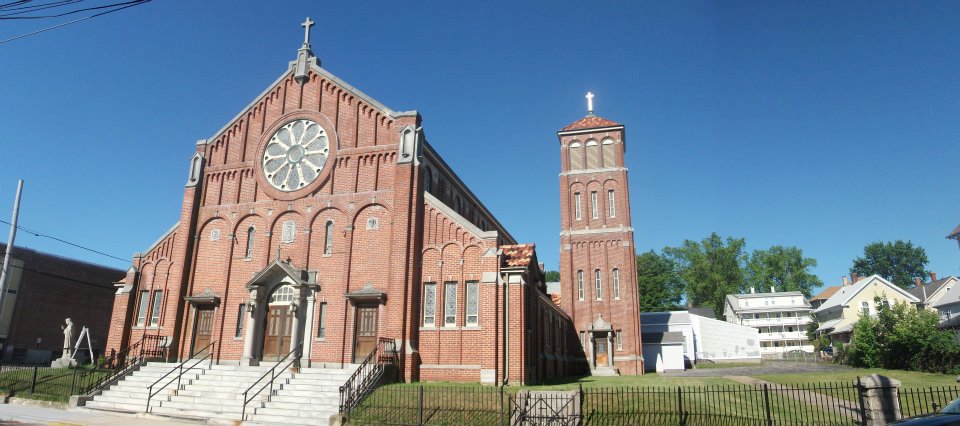IRS Tax Code, Section 501©(3):
A tax-exempt religious organization is a legal entity or vehicle created and operated exclusively for religious purposes, no part of the net earnings of which insures to the benefit of any private individual, no substantial part of the activities of which is carrying on propaganda, or otherwise attempting to influence legislation, and which does not participate in or interfere in any political campaign on behalf of any candidate for public office.

In 1954 Senator (later president) Lyndon B Johnson suggested that in exchange for sweeping tax exceptions, churches would be prohibited from endorsing or opposing political candidates. The Council for Secular Humanism, in a landmark report, estimated that churches in America avoid paying at a minimum $71 billion in taxes. This amounts to a huge subsidy for religious groups in America, a subsidy we pay whether we are religious or not.
The Alliance Defending Freedom (ADF), a right wing theocratic legal defense organization, objects to the prohibition on clerical electoral advocacy. They maintain that churches should still be immune to taxation, but should not have to sacrifice their First Amendment rights to free speech to do so. Each year the ADF organizes Pulpit Freedom Sunday, a date for clergy across the country to violate this prohibition and openly challenge the IRS on this issue. As part of this action ministers send videos of their open violation of the law to the IRS, hoping to provoke a court case that the ADF can use to have the law stricken down.
The IRS has only sporadically enforced the law, and there are very few cases of the IRS going after a mainline Christian church. In fact, there is only one example of such a church losing its tax exempt status: “The Church at Pierce Creek in Binghamton, N.Y., lost its tax-exempt status in 1995 after the IRS determined it had violated federal tax law by publishing a full-page ad in USA Today in late October of 1992 advising people that voting for presidential candidate Bill Clinton was a sin. The church sued in federal court to regain its tax-exempt status but lost in federal district court. A federal appellate court later upheld the ruling denying the church tax-exempt status.”
For the most part, the Roman Catholic Church (RCC) has toed the line in this regard. The structure of the RCC is different from Protestant churches. Think of Protestant churches as a string of little franchises, with independent owners acting as they please within the confines of their conscience and faith. An IRS investigation and fine against one tiny church will not result in cases against other churches because there is no direct relation between them.
The RCC is different. The RCC maintains a top down pyramidal structure and all the churches and related property are financially connected. The priests are, in a sense, employees of the local bishops, who are in turn employees of the Pope, who acts as CEO. Were a case to be opened against a Catholic priest, and it was determined that the priest was following the edicts of his bishop, then other churches and other priests could be fairly investigated, and the entirety of the Catholic Church in the United States could possibly lose its tax free status.
High profile right wing religious advocate Mike Huckabee recently maintained that churches should voluntarily give up their tax free status so that they can move more forcibly into the public arena. Though this would be a bold and honest move on the part of religious institutions, remember that we’re talking $71 billion here. Few institutions are that bold or honest.
As Steve Siebold wrote on the Huffington Post, “Imagine how much food that could buy to feed the hungry, or how it could help those less fortunate. This might be acceptable if the church was actually encouraging strategies to reduce human suffering, irresponsible behavior that harms others, ending violence in our neighborhoods and other critical issues. Churches do not serve the common good; they propagate ancient supernatural mythology that brainwashes people into believing the unbelievable and impedes social and scientific progress.”
One last point: The IRS tax code is federal in nature, but city and state governments have expanded the tax free status of churches in other ways as well. “All 50 US states and the District of Columbia exempt churches from paying property tax. Donations to churches are tax-deductible.”
With all this in mind it is difficult to know what exactly motivates Father Brian Sistare in Woonsocket. Certainly, as his Twitter feed suggests, Sistare is extremely conservative in his views. It is possible that the closer ties being formed by Evangelical and Roman Catholic churches over issues like LGBTQ and reproductive rights have allowed priests like Sistare to feel comfortable violating the prohibition on politicking from the pulpit.
Certainly the evidence of emails from Sistare threatening to influence upcoming elections is a troublesome thing. If his actual sermons make good on this threat, then the IRS should certainly investigate and remedy the situation.
Of course, the Roman Catholic Diocese of Providence could always start paying federal, state and local taxes, in which case no one could complain at all.

